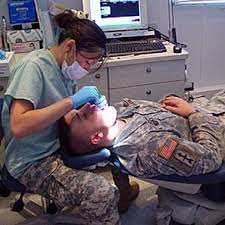Military Medical Careers
Duties and Responsibilities: As a physician in the Navy Medical Corps, you will attend to service members and their families in much the same way a civilian doctor would. But in the world of Navy Health Care, you will attain a broader spectrum of experience faster as you practice at the forefront of medicine. As a Navy Physician, you will help lead the highly respected Navy Health Care team. You might even contribute to medical relief effort across our country and around the globe, serving victims of everything from sickness to combat, from diseases to poverty and from hurricanes to earthquakes.
Salary: over $142,447
Duties and Responsibilities: As a physician in the Navy Medical Corps, you will attend to service members and their families in much the same way a civilian doctor would. But in the world of Navy Health Care, you will attain a broader spectrum of experience faster as you practice at the forefront of medicine. As a Navy Physician, you will help lead the highly respected Navy Health Care team. You might even contribute to medical relief effort across our country and around the globe, serving victims of everything from sickness to combat, from diseases to poverty and from hurricanes to earthquakes.
Salary: over $142,447
Education: After a physician completes 4 years of medical school, their training is not over. They must then complete an internship (also called PGY1 or Post Graduate Year 1) and then a residency (also termed GME or Graduate Medical Education). An internship typically lasts one year and a residency can last from three to seven years depending on the specialty that you choose. Military GME is not much different from civilian GME in that virtually all specialties and sub-specialties are represented. Joining the military will not limit the specialties from which a medical student may choose. For information about which specialties are offered by the different military branches and where the training programs are located, View the page Specialties & Locations of this site. Medical students who attend USUHS or those who have a military obligation through HPSP, ROTC or a service academy are required to apply for the military’s graduate medical education program. Not all who apply will “match” in military GME. Those who don’t “match” may be authorized to apply for a civilian residency
Picture:
Picture:

No comments:
Post a Comment